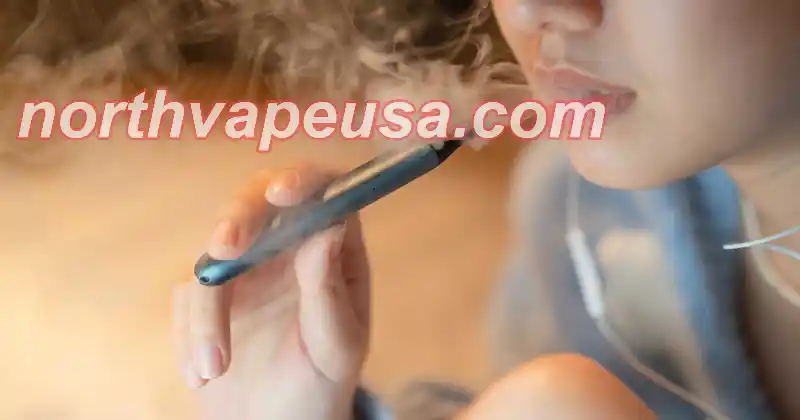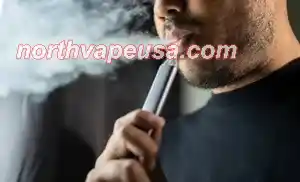Ireland's New Retail Licensing Fee System: A Turning Point for Vaping Regulations
Ireland's New Retail Licensing Fee System: A Turning Point for Vaping Regulations
On January 13, 2024, European Supermarket Magazine reported that Ireland is set to introduce a new retail licensing fee system starting February 2, 2024. This reform is aimed at regulating the sale of electronic cigarettes (vapes) and tobacco products in the country. The key focus is to curb illegal sales, particularly to minors. In this article, we will dive deep into what these changes mean for retailers, consumers, and the vaping industry in general.
What Is the New Retail Licensing Fee System?
The new regulations are straightforward: retailers selling vapes will need to pay an annual licensing fee of €800, while tobacco sellers will need to pay €1000. However, smokeless nicotine pouches will not be affected by these new rules. The Irish Health Service Executive (HSE) will oversee a registration system for all retailers, and compliance will be monitored through regular inspections. Licenses must be renewed every year, and a retailer will lose their right to sell vapes and tobacco products if their license is revoked.
David Melinn, the head of BAT Ireland (British American Tobacco), has called this an important step forward in regulating the market, aiming to stop the illegal sale of vapes, especially those targeting minors. He expressed concern that smokeless nicotine pouches weren’t included in the scope of the new regulations but hopes this will be amended in the future.
The Goal Behind These New Regulations
The goal is clear: Ireland wants to clean up the vaping and tobacco market by raising the bar for entry, ensuring only legitimate businesses are involved, and protecting the public, especially minors, from harmful products. With stricter laws in place, it’s hoped that the illegal market will be pushed out, making it easier for consumers to find regulated products.
Previously, tobacco retailers only needed to pay a one-time fee of €50, and vape sellers didn’t require any licensing at all. But as the vaping market has expanded, so has the need for stronger controls. The government hopes that by enforcing these new rules, it can protect young people from the harmful effects of nicotine while supporting lawful businesses in the process.
Vaping Regulations: What Does the Future Hold?
A More Restrictive Approach to Vapes
Fast forward to February 5, 2025, and Ireland is gearing up for even stricter regulations on vapes. New proposals include banning certain flavors that may attract minors, restricting the retail display of vapes, and ultimately moving toward a complete ban on disposable vapes. This means significant changes are coming to both the retail and consumer landscapes.
The government’s consultation process on these changes has sparked controversy, especially from companies like BAT Ireland. They’ve raised concerns about the lack of clarity surrounding the consultation's scope and duration, even sending legal letters to the Department of Health (DoH) seeking clarification. Despite this, they’ve been involved in the process and are particularly vocal about some proposals, including the potential ban on displaying vapes in retail stores.
BAT Ireland feels that this move could infringe on property rights and freedom of speech. They also oppose banning certain vape flavors, arguing that adult-friendly flavors should remain available to help smokers transition from traditional cigarettes to vapes.
A Step Towards Comprehensive Regulation
Although the consultation process is ongoing, the government has received over 15,800 responses, with a significant portion of these responses coming from vape users. However, there is strong support from healthcare professionals, educators, and non-users for stricter rules. This is a clear indication that public health groups are in favor of more regulatory oversight, as they aim to protect minors and minimize the harmful effects of vaping.
Proposed Changes to Retail Displays and Vaping Licenses
One of the most notable changes is the proposal to restrict the display of vapes in regular retail stores. According to the government's draft proposal, only dedicated vape shops would be allowed to display these products openly. This would severely limit how and where people can purchase vapes. Additionally, by requiring all vape retailers to apply for a license and pay an annual fee, the government aims to further regulate the market and ensure that only authorized businesses are selling these products.
The Importance of Following Legal Vaping Practices
Tackling the Rise of Illegal Vaping Products
As new regulations are set in motion, it’s more important than ever for consumers and businesses alike to stay informed about the risks associated with illegal vaping products. Some businesses, including mobile accessory stores and computer repair shops, have been selling vapes that lack necessary health warnings or contain dangerously high levels of nicotine.
These unregulated products not only threaten public health but also undermine the efforts of legitimate retailers who follow the rules. By staying informed about new regulations and understanding how to spot these illegal products, you can contribute to the effort to clean up the vaping industry.
To learn more about how governments worldwide are cracking down on illegal vaping practices, check out the article on illegal vaping. This article explores how countries such as Nepal, the Philippines, and the U.S. are stepping up their efforts to curb illegal vaping and protect their citizens.
The Impact of Stricter Vape Regulations
How These Changes Affect the Industry and Consumers
With stricter regulations being put in place, there are both pros and cons for the vaping industry and consumers alike. On one hand, the new laws will help weed out illegal sales and encourage healthier choices by restricting minors' access to vapes. On the other hand, the new licensing fees and retail restrictions may make it more challenging for small businesses to stay competitive in the market.
For consumers, it could mean fewer choices in terms of where to buy vapes and the types of flavors available. However, the protection of public health is the driving force behind these changes, and many argue that the long-term benefits outweigh the potential downsides.
The Global Picture: Vaping Laws Around the World
Australia’s New Vape Laws and Their Impact
As vaping regulations become more stringent in Ireland, other countries are also tightening their laws. Australia’s New Vape Laws are one example of how nations are addressing the rising popularity of vapes. The Australian government has implemented new regulations to reduce the accessibility of vapes and nicotine products. These regulations aim to combat the rise in teenage vaping and ensure that only smokers seeking to quit have access to vaping products.
To understand more about these global efforts and their implications, take a look at the article on Australia’s New Vape Laws, which dives deep into how Australia’s laws are shaping the future of the vaping market.
Final Thoughts on Ireland’s Vaping Regulations
The Path Ahead for Vaping in Ireland and Beyond
Ireland’s new retail licensing system and the push for stricter vape regulations are undoubtedly going to have a major impact on the vaping industry. By raising the entry barriers for retailers and eliminating illegal sales, these regulations aim to create a more structured and regulated market, with the ultimate goal of protecting consumers, especially minors, from harmful products.
For those looking for a top-tier vaping experience, check out the North 12000 Disposable Vape. This product offers reliable quality and performance for those who want to vape without worrying about unregulated products.
As always, it’s important to stay informed and make responsible choices. If you're looking for a diverse selection of flavors, explore the north vape flavors collection for all your vaping needs. And don’t forget to stay updated on how governments worldwide are addressing the issue of illegal vaping to ensure that the products you’re purchasing are safe and legal.
In conclusion, as regulations evolve, consumers must adapt to the changes, but the overarching goal remains the same: to promote public health and support legitimate retailers. As the vaping industry continues to evolve, it’s crucial to stay ahead of the curve and be aware of how these laws are shaping the future of the vaping market.

